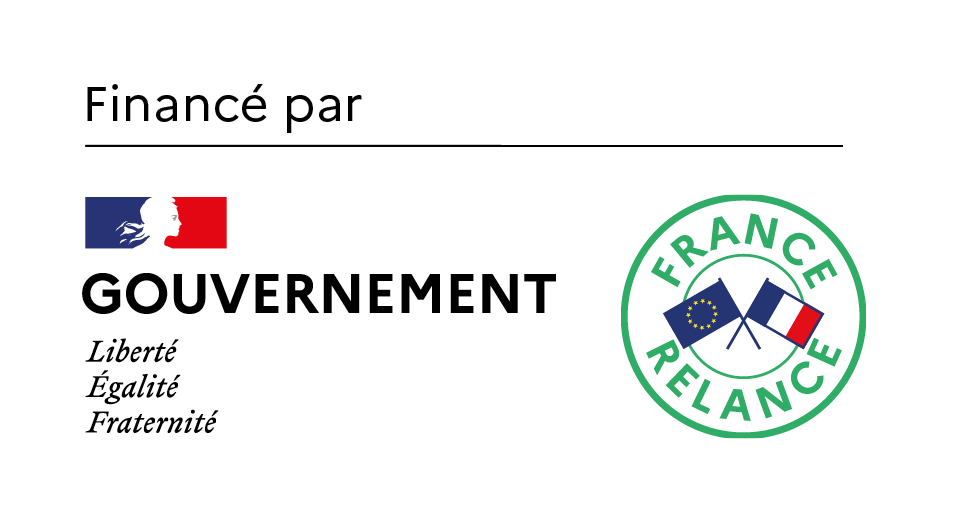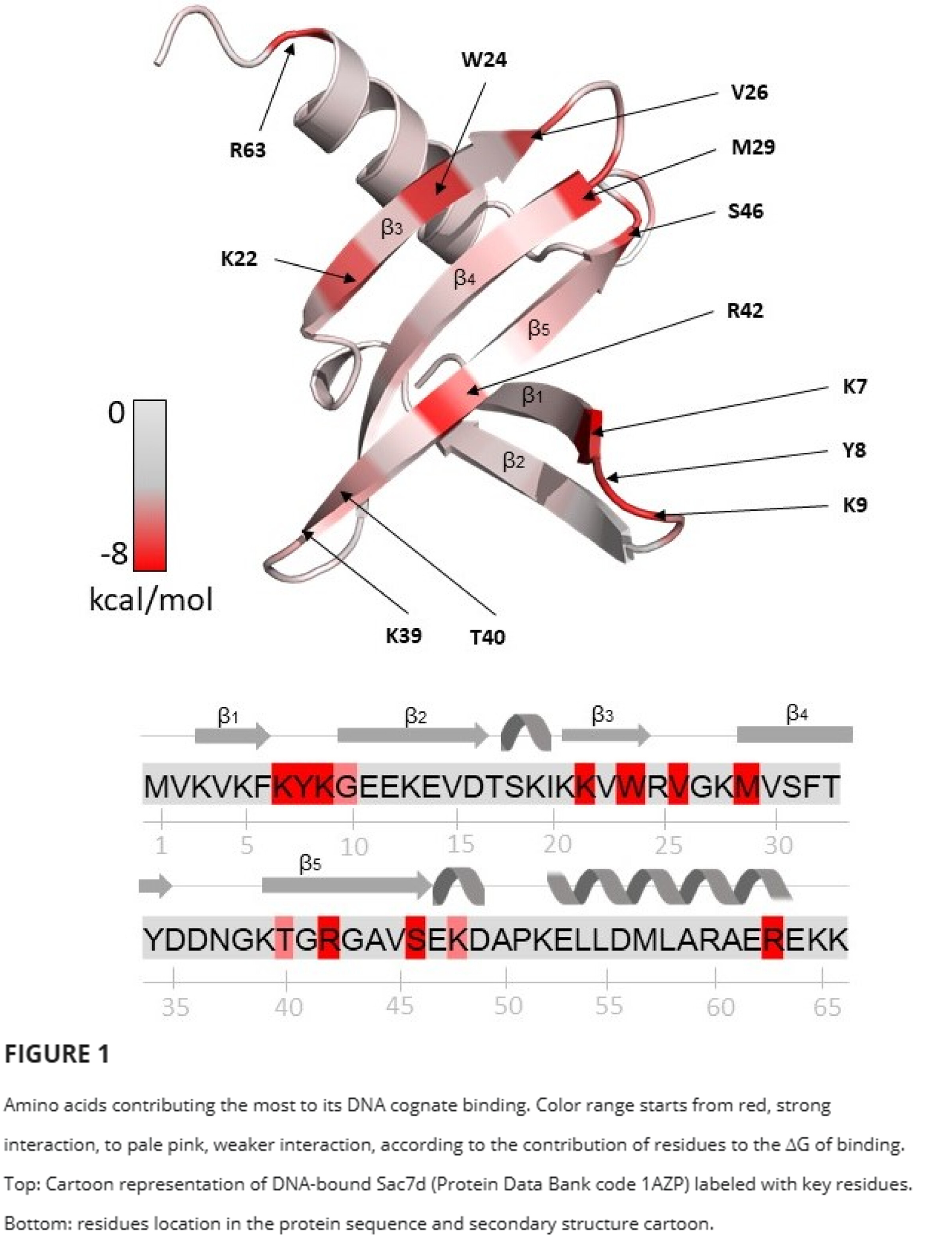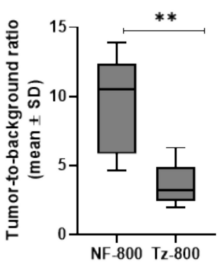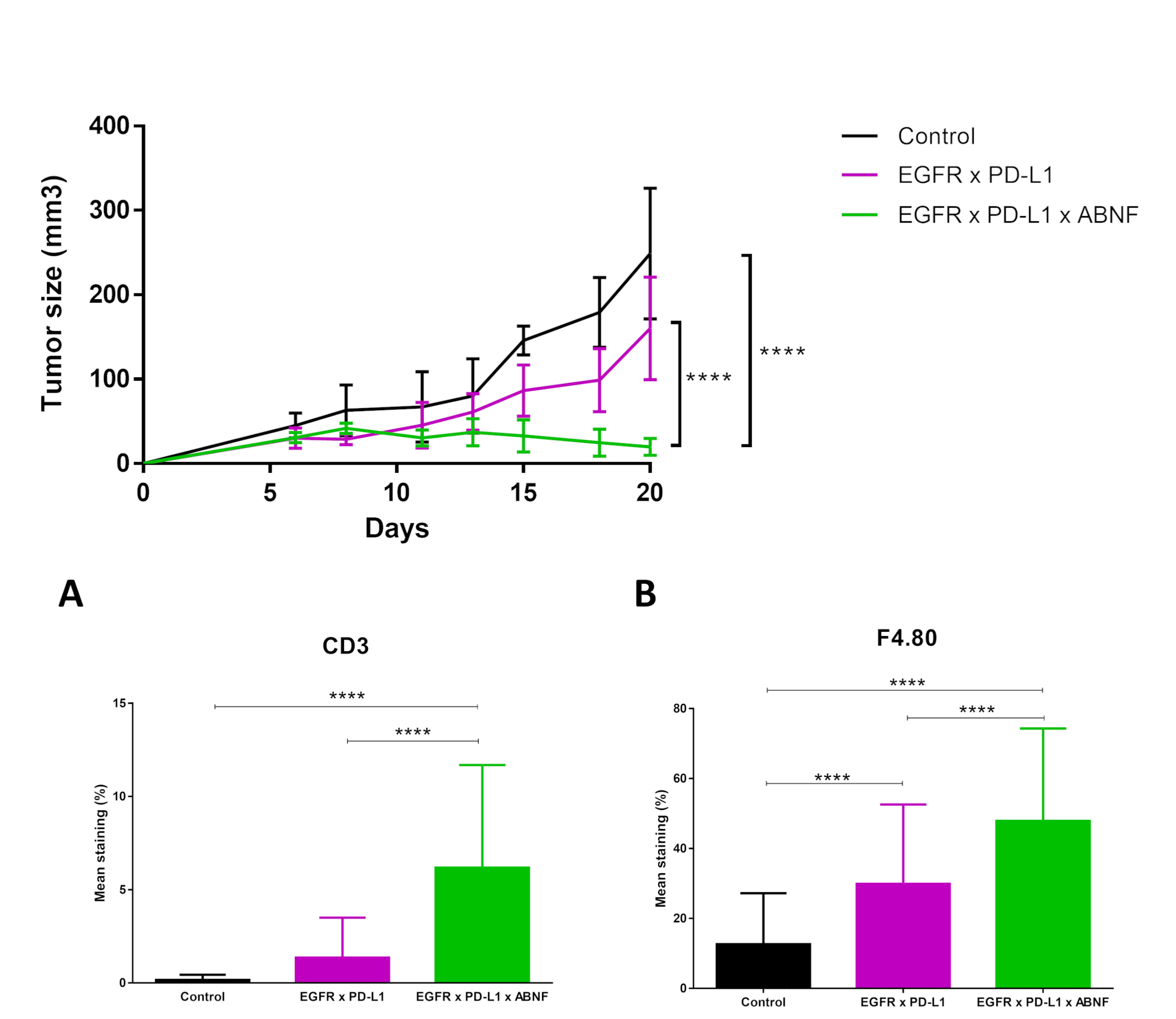Energetics Decomposition of Sac7d:DNA Decrypts Amino Acids Role Without DNA Sequence Selectivity
Dr. Elena ALVAREZ SANCHEZ, in collaboration with Affilogic for her thesis, has just published in the Journal of Molecular Recognition, studying the dynamic interaction (1µs) between Sac7d (the original protein from wich our derived our Nanofitins®) and DNA. Elena has been able to demonstrate that some specific amino acids are contributing more than others in the interaction with the DNA, as well as demonstrated that the Sac7d protein slides along the DNA, suggesting low implication of specific DNA sequences in this interaction.
Full publication here
Affilogic and SML Biopharm to Collaborate on Targeted mRNA-LNP Therapeutics
Affilogic and SML Biopharm, a South Korea-based biotech company specializing in mRNA-based therapeutics, have signed a memorandum of understanding (MOU) to collaborate on the development of next-generation targeted drugs using mRNA-LNP (lipid nanoparticle) technology.
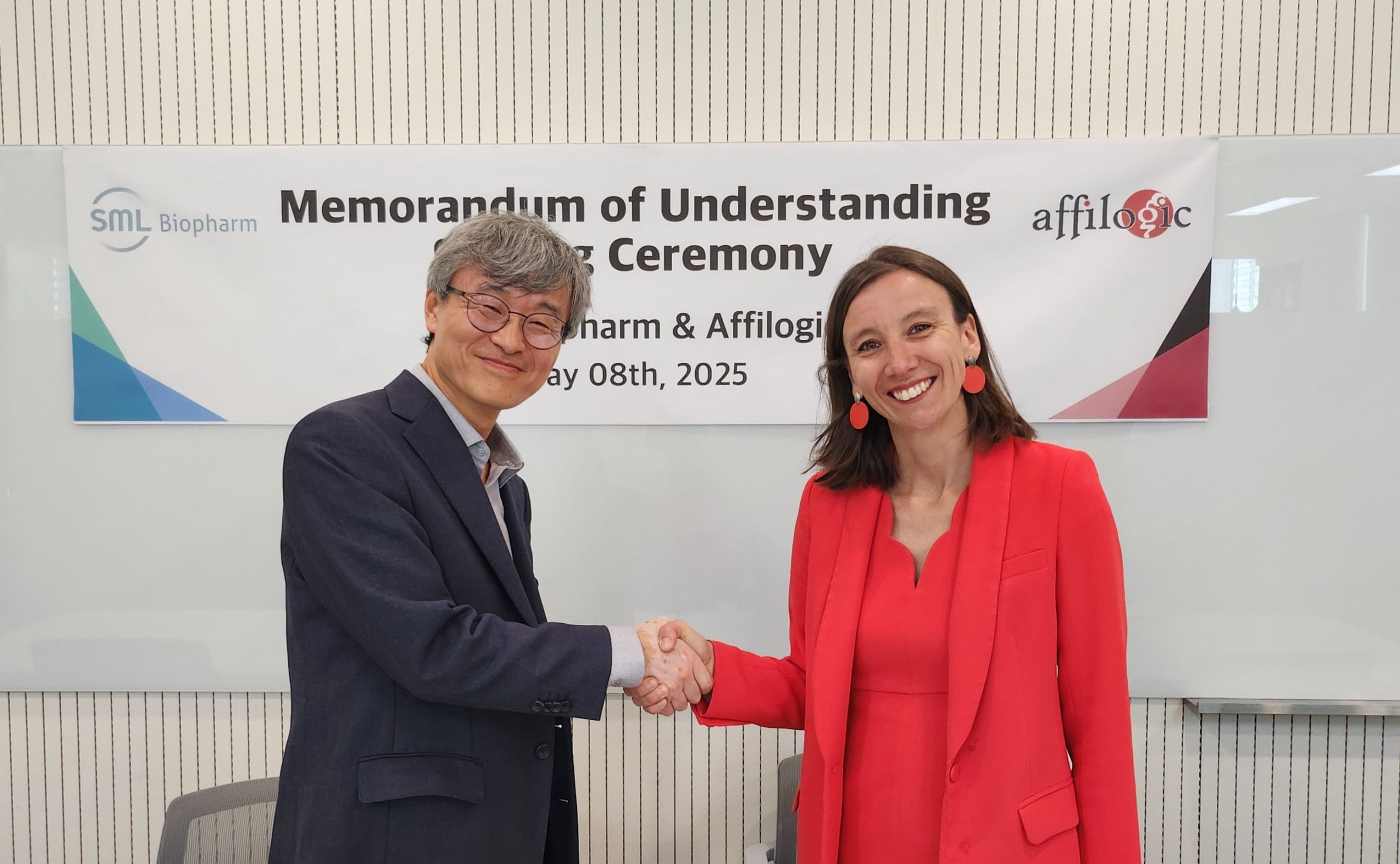
Full MOU here
Complete preclinical evaluation of the novel antibody mimetic Nanofitin-IRDye800CW for diverse non-invasive diagnostic applications in the management of HER-2 positive tumor
Our partner Bracco published on using Nanofitins used as a non-invasive diagnostic tool for the management of HER-2 positive tumors. Thanks to the small size of Nanofitins and their ability to be combined to other molecules such as fluorophores, Nanofitins penetrates deeper and faster into the tumors, and can also be rapidly washed out of the body if not engaged. This work shows that our NF-800 Nanofitins displays a diagnostic advantage over Trastuzumab.
Full publication here
A Multispecific Checkpoint Inhibitor Nanofitin with a Fast Tumor Accumulation Property and Anti-Tumor Activity in Immune Competent Mice
Affilogic has published in-vivo data on anti-tumor bispecific Nanofitin construct targeting simultaneously PDL-1 and EGFR. Here we show that this construct intravenously administered in EGFR positive tumor xenografted, immunocompetent mice, can penetrate deeply within the tumor. We also show that it has a powerful anti-tumor effect, and that it is strongly correlated with recruitment of immune cells within the tumor, including effector T-cells and Macrophages, when fused to our half-life extension module ABNF.
Full publication here
Generation of a pan-specific anti-human influenza A Nanofitin for direct protective effect in respiratory tract @I4ID2024
Perrine Jacquot to present latest data on our anti-influenza Nanofitin®-based therapeutics. Pulmonary delivered anti-influenza Nanofitins® exert very promising efficacy results in-vivo in mice.
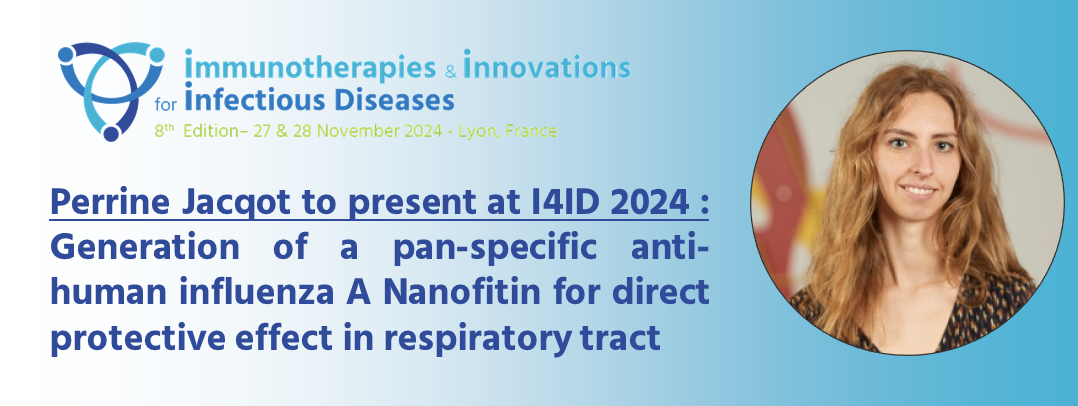
Curing emerging infectious diseases with a Nanofitin-based therapeutic approach @PEGSEurope2024
Mathieu Cinier to showcase new data on anti-infective approaches using Nanofitins®. Nanofitins® can be pulmonary delivered thanks to their high stability, to treat pulmonary viral infectious diseases.
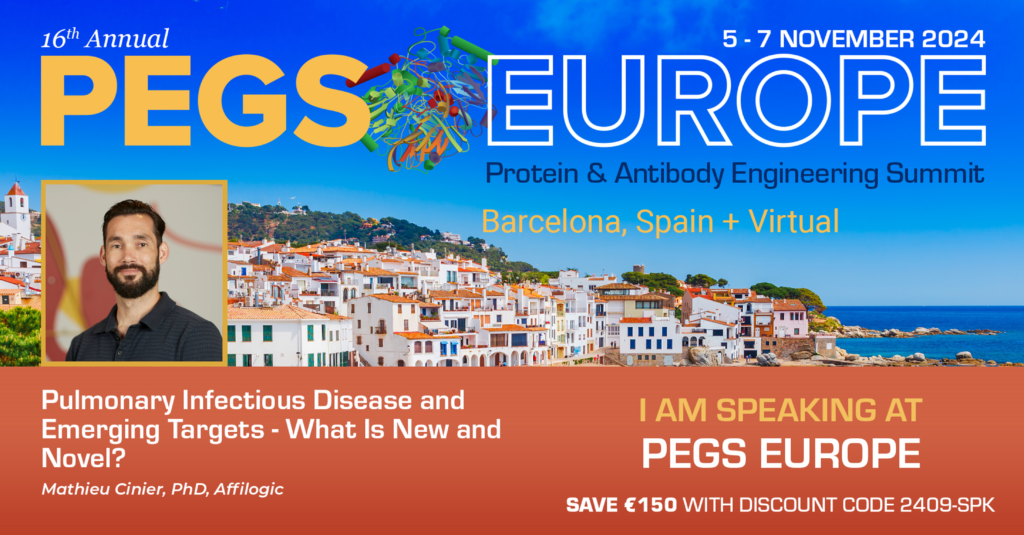
Affilogic takes part in the NAVIPP Project
Since beginning of 2024, Affilogic is a member of the NAVIPP project, that also include GSK, the European Research Infrastructure on Highly pathogenic Agents (erinha), the Max-Planck-Gesellschaft zur forderung der wissenschaften ev (MPG) and the Agencia Estatal Consejo Superior de Investigaciones Cientificas (CSIC). The consortium will implement a strategic, multi gear R&D and clinical roadmap for the identification, optimisation, preclinical and clinical investigation of broad-spectrum antivirals against pathogens with epidemic or pandemic potential.

Iconovo to present positive data from a feasibility study on Nanofitins® in ICOone®
Iconovo AB and Affilogic today announce that Iconovo will present positive results from a feasibility study with a Nanofitin®-based biologic drug against respiratory virus using ICOone®. The study results will be presented at Respiratory Drug Delivery (RDD®) 2024, which takes place in Tucson, Arizona, on May 5-9, 2024.
Read more
![]()
Enhancing Oral Delivery of Biologics: A Non-Competitive and Cross-Reactive Anti-Leptin Receptor Nanofitin Demonstrates a Gut-Crossing Capacity in an Ex Vivo Porcine Intestinal Model
Affilogic published data on Nanofitins® used as Gut-Crossing shuttle, to allow oral delivery of biologic therapeutics, capitalizing on their High stability. We developed anti-LepR Nanofitins®, to exploit receptor mediated transcytosis, and validate a proof-of-concept of biologically active molecules delivery across an ex-vivo porcine intestinal model. The chosen Nanofitins® does not compete with Leptin, and is cross-reactive across Human, Mouse and Pig, paving the way to pre-clinical studies to demonstrate safe and efficient oral-to-systemic delivery of targeted therapies.
This work has been done in collaboration with the Blood Brain Barrier Laboratory of the Artois University, the School of Pharmaceutical Sciences and Institute of Pharmaceutical Sciences of Western Switzerland of the University of Geneva.
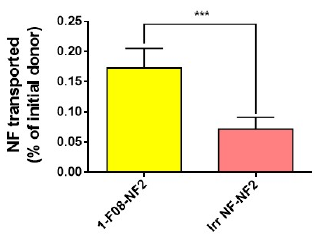
Full publication here
Targeted Nanofitin-drug Conjugates Achieve Efficient Tumor Delivery and Therapeutic Effect in an EGFRpos Mouse Xenograft Model
Affilogic published in-vivo data on Nanofitin-drug conjugates, an approach using Nanofitins for taregted delivery of a cytotoxic payload, i.g MMAE. This publication shows almost 100% tumor penetration, efficient targeted delivery of MMAE and efficient therapeutic effect of this Nanofitin-Drug Conjugate by inhibiting EGFR positive tumor growth in xenograft mice. It strengthen the interest of using Nanofitins-drug conjugates as targeted therapeutics to treat solid tumors. This work has been done in collaboration with the University of Geneva, the ULB/CMMI and iBET.
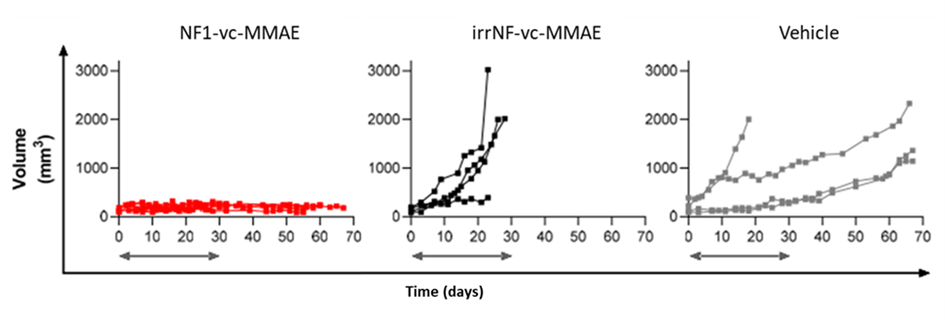
Full publication here
Inhalable Nanofitin demonstrates high neutralization of SARS-CoV-2 virus via direct application in respiratory tract
Affilogic published data on anti-COVID, multispecific Nanofitin construct by direct pulmonary administration. Data shows Nanofitins’ preserved activity of virus inhibition once nebulized, and promising reduction of infection and inflammation in both the prophylactic and therapeutic groups of mice. This work has been done in collaboration with the Research Center for Respiratory Diseases INSERM team from the University of Tours.

Full publication here
Bispecific Nanofitins for tumor selective immune checkpoint inhibition
Affilogic published data on anti EGFR-PDL1 bispecific Nanofitin approach, reaching tumor selective immune checkpoint inhibition by the cross-arm binding of these two receptors, in collaboration with ICO and the CNRS UMR 6286 of Nantes University.
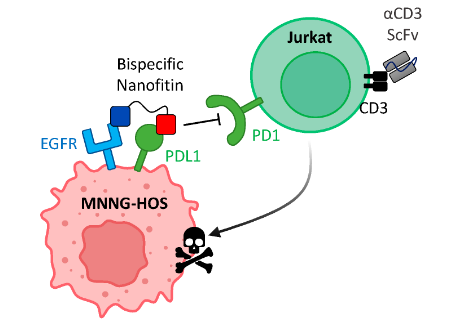
Full publication here
Development of multi-specific Nanofitin® molecules against lung infections
Affilogic started to develop multi-specific Nanofitin® molecules targeting global health pathogens for a treatment & vaccination approach. One particular objective is to protect individuals in lower middle income countries from infectious diseases. Such research activities are supported by a grant of $1.063M from the Bill & Melinda Gates Foundation.
Nanofitins® being 20 times smaller than antibodies, highly soluble and extremely stable proteins, they can be delivered into the lungs to address respiratory indications locally.
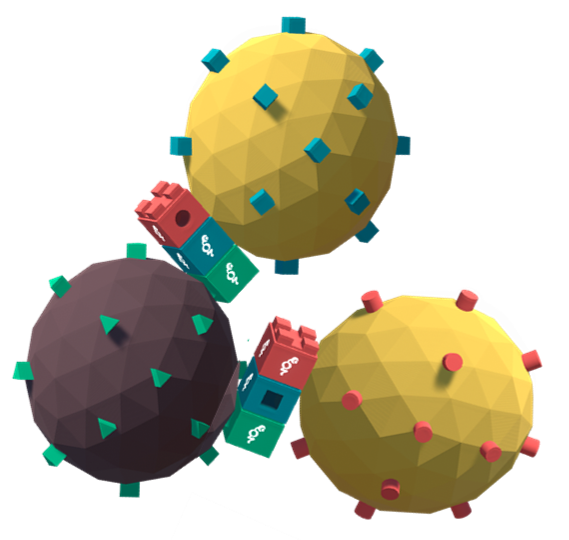
One scaffold, several approaches: tackling cancer diseases with Nanofitins @PEGS2022
Mathieu Cinier to present a poster showing latest data of Nanofitin used as cancer targeted therapies. Nanofitins display multiple advantages making them very attractive alternative scaffolds for cancer treatment.
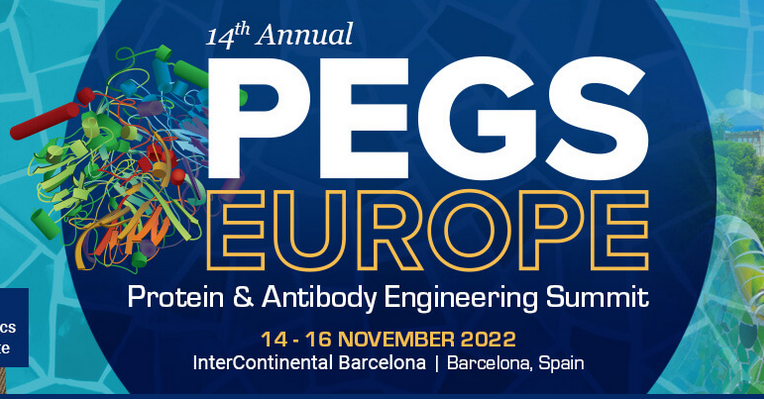
Affilogic and Apellis expand R&D collaboration to develop targeted complement therapies for delivery into the brain.
Apellis Pharmaceuticals, Inc. and Affilogic today announced that the companies have expanded their research and development (R&D) collaboration, which was initially formed in 2018, to include the development of Nanofitins® targeting the transferrin receptor (TfR), which enables drugs to be transported across the blood brain barrier and into the central nervous system.
Read more

Apellis and Affilogic published on the discovery of a novel, high-affinity Nanofitin inhibitor of C3-mediated complement activation
Apellis in collaboration with Affilogic published on the discovery of a novel, high-affinity Nanofitin inhibitor of C3-mediated complement activation, named APL-1030. Read more
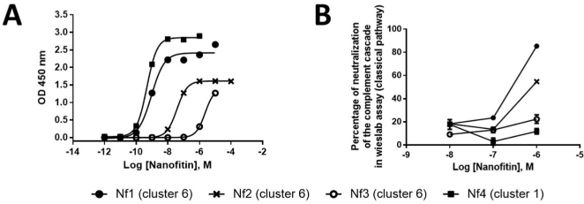

Albumin binding Nanofitins, a new scaffold to extend half-life of biologics – a case study with Sanofi with their Exenatide peptide.
Affilogic published with Sanofi on using albumin binding Nanofitins as a half-life extension module with Exenatide biologically active. Read more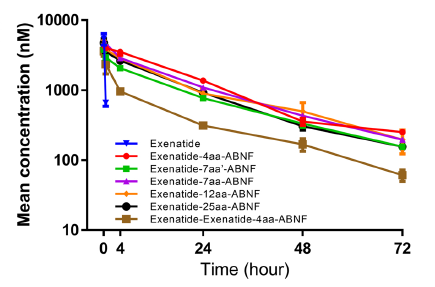

“Respitude” Affilogic’s project laureate of the AMI “Nouvelles Biothérapies & outils de production”.
The “Respitude project support the development of a candidate Nanofitin simultaneously targeting multiple epitopes of the SARS-Cov2 S surface protein, neutralizing its interaction with cells, and take it to phase I/IIa clinical stage.
Nanofitins being 20 times smaller than antibodies, highly soluble and extremely stable proteins, they can be easily nebulized. Affilogic already demonstrated bio-distribution of Nanofitins into different compartments of the lungs in animal models. Read More
The #FranceRelance investment plan includes 800 Million Euros (from #PIA), to help biotherapies development, stimulate competitiveness and follow the development of the French industrial environment which is necessary in order to no longer depend 95% on foreign biotherapies.
